-
 Bitcoin
Bitcoin $117700
-1.00% -
 Ethereum
Ethereum $4458
-3.91% -
 XRP
XRP $3.119
0.14% -
 Tether USDt
Tether USDt $1.001
-0.02% -
 BNB
BNB $836.6
-1.56% -
 Solana
Solana $189.5
-3.90% -
 USDC
USDC $0.9998
-0.02% -
 Dogecoin
Dogecoin $0.2335
1.29% -
 Cardano
Cardano $0.9642
1.51% -
 TRON
TRON $0.3539
-1.19% -
 Hyperliquid
Hyperliquid $47.41
-1.84% -
 Chainlink
Chainlink $21.92
-3.28% -
 Stellar
Stellar $0.4286
-0.23% -
 Sui
Sui $3.724
-3.29% -
 Bitcoin Cash
Bitcoin Cash $594.8
-0.78% -
 Ethena USDe
Ethena USDe $1.001
0.04% -
 Hedera
Hedera $0.2501
-2.06% -
 Avalanche
Avalanche $23.96
-4.87% -
 Litecoin
Litecoin $119.0
-2.32% -
 Toncoin
Toncoin $3.473
0.82% -
 UNUS SED LEO
UNUS SED LEO $9.596
0.17% -
 Shiba Inu
Shiba Inu $0.00001301
-0.39% -
 Uniswap
Uniswap $11.03
-0.25% -
 Polkadot
Polkadot $3.935
-2.62% -
 Dai
Dai $1.000
0.01% -
 Bitget Token
Bitget Token $4.564
-1.76% -
 Cronos
Cronos $0.1512
-4.11% -
 Ethena
Ethena $0.7306
-1.09% -
 Pepe
Pepe $0.00001087
-2.68% -
 Aave
Aave $300.2
-4.00%
Introducing the format and characteristics of CashApp Bitcoin wallet address
Cash App's Bitcoin address, unique to your account, simplifies transactions within its system but lacks the control of traditional wallets. Security relies on Cash App's protocols and 2FA, unlike self-custody options offering direct key control.
Mar 25, 2025 at 07:42 pm
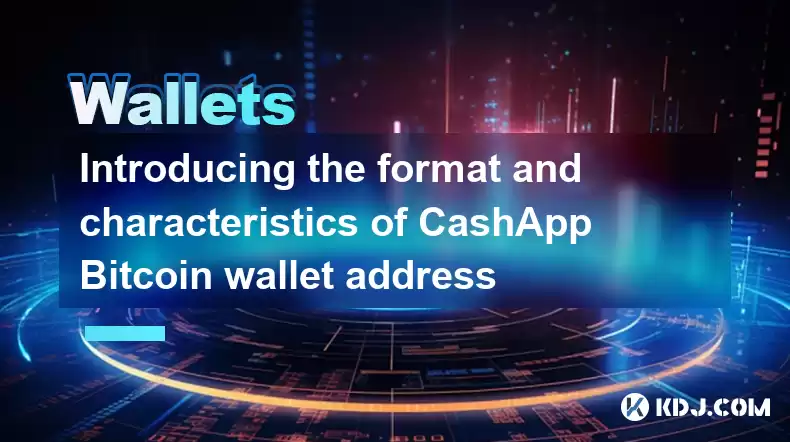
Key Points:
- Cash App's Bitcoin wallet address is a unique identifier, similar to a bank account number, used to receive and send Bitcoin.
- It's not a traditional address like those used for other cryptocurrencies; it's tied to your Cash App account and operates within Cash App's system.
- Security features include two-factor authentication (2FA) and Cash App's internal security protocols. However, it's crucial to understand its limitations compared to self-custody wallets.
- Understanding the differences between a Cash App Bitcoin address and addresses from other wallets is critical for secure and efficient Bitcoin transactions.
- Knowing how to find and manage your Cash App Bitcoin address is essential for using the platform for Bitcoin transactions.
Introducing the Format and Characteristics of CashApp Bitcoin Wallet Address
Cash App's Bitcoin wallet is not a traditional cryptocurrency wallet in the sense that it doesn't give you direct control over your private keys. Instead, it functions as a custodial wallet, meaning Cash App holds the private keys on your behalf. Your Bitcoin address within Cash App is unique to your account and is used to receive and send Bitcoin within the Cash App ecosystem. It's crucial to remember that this address is tied directly to your Cash App account and cannot be used with other Bitcoin wallets or platforms.
The format of a Cash App Bitcoin address isn't easily identifiable as a standard Bitcoin address (like a P2PKH or Bech32 address). It's essentially an internal identifier managed by Cash App's system. You won't see the typical alphanumeric string associated with Bitcoin addresses on other platforms. This internal format simplifies the user experience within Cash App but limits its interoperability.
Cash App utilizes robust security measures to protect your Bitcoin. These include two-factor authentication (2FA), which adds an extra layer of security requiring a code from a separate device, in addition to your password. However, it's essential to note that the security of your Bitcoin relies heavily on Cash App's security protocols and their ability to protect against hacking and other security threats. This differs significantly from self-custody wallets where you hold the private keys.
Finding and Managing Your Cash App Bitcoin Address
Locating your Cash App Bitcoin address is straightforward. Within the Cash App interface, navigate to the "Bitcoin" tab. You'll typically find an option to "Receive" Bitcoin. Selecting this option will usually display your unique Cash App Bitcoin address, ready for use.
Sending Bitcoin through Cash App also utilizes your associated Cash App Bitcoin address. When initiating a send transaction, the app automatically utilizes your associated address. You won't manually input addresses in the same way you would with a traditional Bitcoin wallet. This simplified process is convenient but lacks the flexibility of managing multiple addresses or directly interacting with the Bitcoin blockchain.
Security Considerations and Limitations
While Cash App employs security measures, it's vital to acknowledge the inherent limitations of a custodial wallet. Because Cash App holds your private keys, you are reliant on their security systems. Unlike self-custody wallets, you don't have direct control over your Bitcoin's security. This means that if Cash App experiences a significant security breach, your Bitcoin could be at risk. Always enable 2FA and follow Cash App's security recommendations.
Comparison with Other Bitcoin Wallets
Unlike traditional Bitcoin wallets like Electrum, Exodus, or Trezor, which provide you with your private keys, giving you complete control over your Bitcoin, Cash App acts as an intermediary. This simplifies the process but reduces your control and introduces a reliance on Cash App's security. Traditional wallets offer greater flexibility and security for experienced users but often require a steeper learning curve.
Frequently Asked Questions:
Q: Can I use my Cash App Bitcoin address with other Bitcoin wallets or exchanges?
A: No, your Cash App Bitcoin address is specific to Cash App and cannot be used with other platforms. It's an internal identifier within their system.
Q: Is it safe to store large amounts of Bitcoin in my Cash App wallet?
A: While Cash App has security measures, storing significant amounts of Bitcoin in a custodial wallet always carries some risk. Consider the security implications and your risk tolerance. Diversification across wallets might be a prudent strategy.
Q: What happens if I lose access to my Cash App account?
A: Losing access to your Cash App account means you'll lose access to your Bitcoin stored within the app. Cash App's customer support may be able to assist, but the recovery process can be complex.
Q: Can I generate multiple Bitcoin addresses within Cash App?
A: Cash App typically doesn't provide the option to generate multiple Bitcoin addresses like traditional wallets. Your single address is tied to your account.
Q: What are the fees associated with using Cash App's Bitcoin wallet?
A: Cash App charges fees for buying, selling, and sometimes sending Bitcoin. These fees vary and are usually displayed before confirming a transaction. Check the app for current fee information.
Q: How do I recover my Bitcoin if I forget my Cash App password?
A: Cash App provides password recovery options through email or phone number. Follow their instructions carefully. However, ensure you have enabled 2FA for enhanced security.
Q: Is Cash App's Bitcoin wallet insured?
A: Cash App's Bitcoin holdings are not typically insured in the same way as bank deposits. The security of your Bitcoin relies on Cash App's internal security measures.
Disclaimer:info@kdj.com
The information provided is not trading advice. kdj.com does not assume any responsibility for any investments made based on the information provided in this article. Cryptocurrencies are highly volatile and it is highly recommended that you invest with caution after thorough research!
If you believe that the content used on this website infringes your copyright, please contact us immediately (info@kdj.com) and we will delete it promptly.
- Kazakhstan's Crypto Leap: Bitcoin ETF and Central Asia's Digital Finance Future
- 2025-08-13 12:45:19
- BlockDAG Presale Blazes Past $371M: Fundraising Frenzy Fuels Crypto Sensation
- 2025-08-13 13:05:21
- Meme Coins: Chasing the 2025 Surge – Which Will Moonshot?
- 2025-08-13 10:25:23
- Bitcoin's Wild Ride: Rally, Pullback, and What's Next
- 2025-08-13 10:25:23
- Bitcoin, Bitmax, and Institutional Demand: A New Era of Crypto Investment
- 2025-08-13 10:45:12
- Solana, ROAM, and Airdrops: What's the Buzz in 2025?
- 2025-08-13 11:35:13
Related knowledge
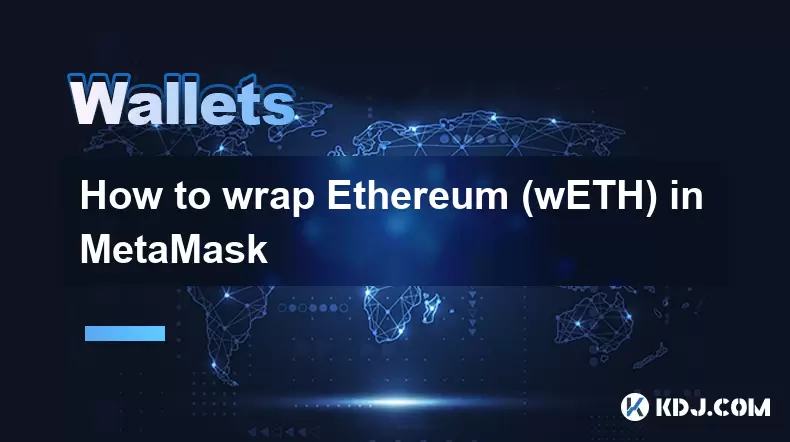
How to wrap Ethereum (wETH) in MetaMask
Aug 13,2025 at 11:36am
Understanding Wrapped Ethereum (wETH)Wrapped Ethereum (wETH) is a tokenized version of native Ethereum (ETH) that conforms to the ERC-20 standard, ena...

How to manage your portfolio in Exodus wallet
Aug 08,2025 at 10:07pm
Understanding the Exodus Wallet InterfaceThe Exodus wallet is a non-custodial cryptocurrency wallet that supports a wide range of digital assets. When...
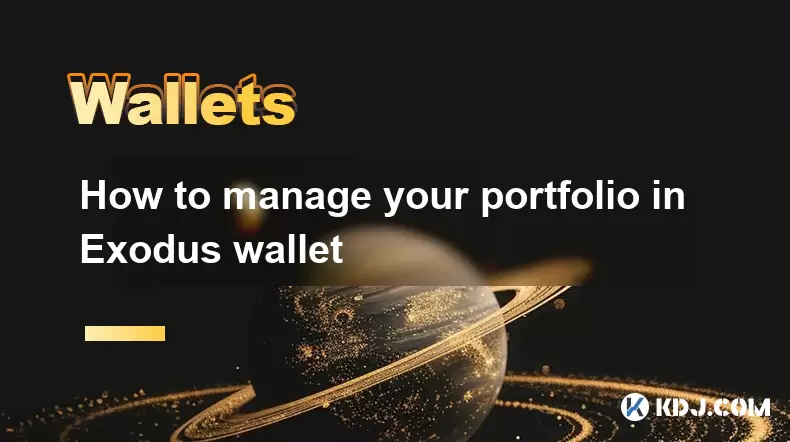
How to manage your portfolio in Exodus wallet
Aug 13,2025 at 11:35am
Understanding the Exodus Wallet InterfaceThe Exodus wallet is a non-custodial cryptocurrency wallet that supports a wide range of digital assets. Upon...

How to reset your MetaMask password
Aug 08,2025 at 01:28pm
Understanding the MetaMask Password Reset ProcessMany users confuse the MetaMask password with the seed phrase or private key, but they serve differen...
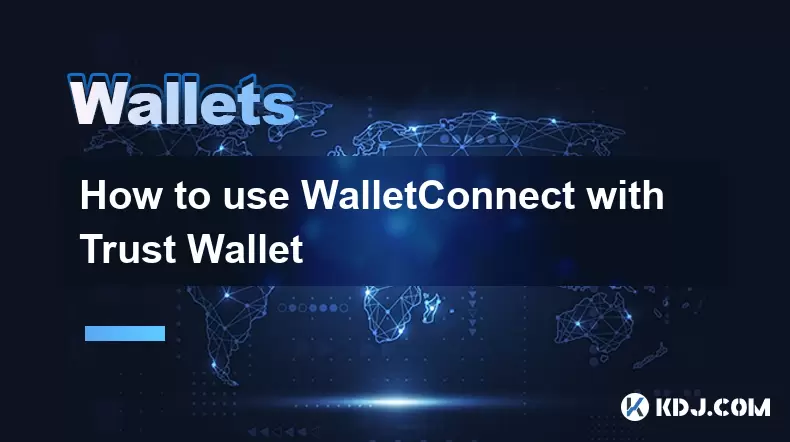
How to use WalletConnect with Trust Wallet
Aug 13,2025 at 01:07am
What Is WalletConnect and Why It Matters for Trust Wallet UsersWalletConnect is an open-source protocol that enables secure communication between dece...
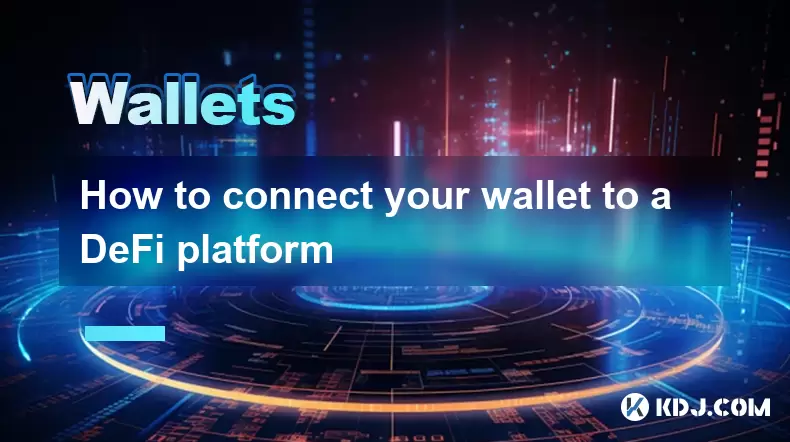
How to connect your wallet to a DeFi platform
Aug 13,2025 at 11:36am
Understanding Wallet Compatibility with DeFi PlatformsBefore connecting your wallet to any DeFi platform, it's essential to ensure your wallet is comp...

How to wrap Ethereum (wETH) in MetaMask
Aug 13,2025 at 11:36am
Understanding Wrapped Ethereum (wETH)Wrapped Ethereum (wETH) is a tokenized version of native Ethereum (ETH) that conforms to the ERC-20 standard, ena...

How to manage your portfolio in Exodus wallet
Aug 08,2025 at 10:07pm
Understanding the Exodus Wallet InterfaceThe Exodus wallet is a non-custodial cryptocurrency wallet that supports a wide range of digital assets. When...

How to manage your portfolio in Exodus wallet
Aug 13,2025 at 11:35am
Understanding the Exodus Wallet InterfaceThe Exodus wallet is a non-custodial cryptocurrency wallet that supports a wide range of digital assets. Upon...

How to reset your MetaMask password
Aug 08,2025 at 01:28pm
Understanding the MetaMask Password Reset ProcessMany users confuse the MetaMask password with the seed phrase or private key, but they serve differen...

How to use WalletConnect with Trust Wallet
Aug 13,2025 at 01:07am
What Is WalletConnect and Why It Matters for Trust Wallet UsersWalletConnect is an open-source protocol that enables secure communication between dece...

How to connect your wallet to a DeFi platform
Aug 13,2025 at 11:36am
Understanding Wallet Compatibility with DeFi PlatformsBefore connecting your wallet to any DeFi platform, it's essential to ensure your wallet is comp...
See all articles

























































































